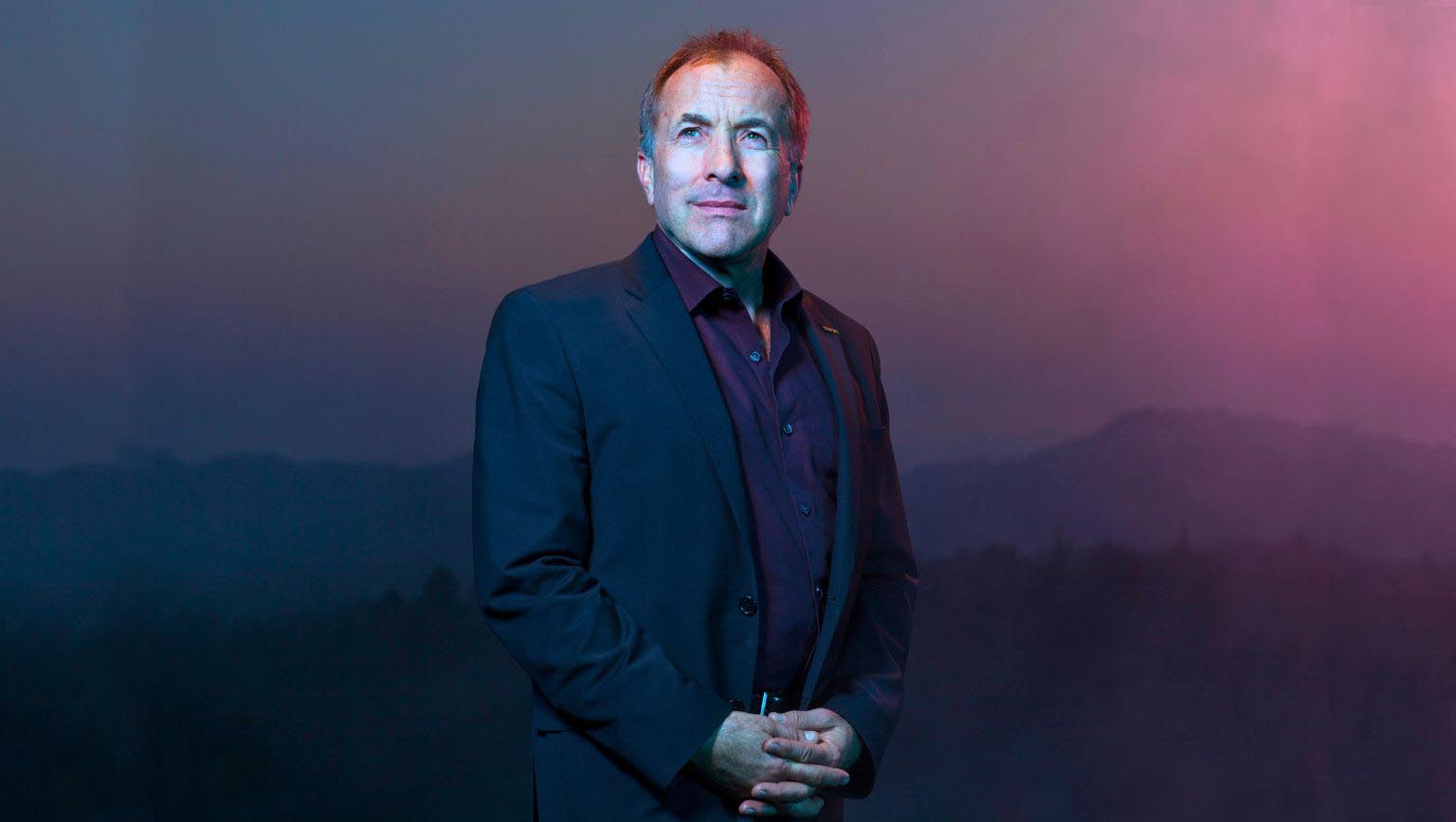
The Basement Gym + Studio opens in Camden Town
Camdenist readers get 50% off their first month’s membership, too

Michael Shermer is founder of The Skeptics Society and fights daily for scientific reason, debunking conspiracies and exposing mumbo-jumbo with a surprisingly optimistic and cheery approach.
Ahead of appearing in the debates ‘The Shadow of Spirituality’ and ‘Rationality in the Dock’ at HTLGI 2023, we caught up with Michael to see where his head is at on these fiery topics.
Does the decline of organised religion create a vacuum for rather more disorganised ideas around a kind of vague spirituality?
It depends what you even mean by spirituality. Or by religion. Those words mean a lot of different things to different people. You could say that things like being woke, political progressivism, or the racist and gender inclusion monuments are new religions. They all similarly deal with some key aspects of human nature – asking what’s our place in the world, and being aware of our own mortality.
Religion has been the main source of answers for a long time, but if it goes away it can be replace quite easily by anything really; long walks in the forest or on the beach, meditation, dancing, or exercise. There’s a whole body of research in psychology now on awe. That’s a kind of spirituality, in that it is a way of contemplating your place in the universe, being in awe of nature, taking you out of your yourself into this much larger context. Think of those times you see a rainbow as an example.
Perhaps non-religious people are feeling that awe when they declare that ‘the universe has an intention’ for them?
Haha, yes! The universe doesn’t want anything. It’s not sentient as that would require it to have a brain of some kind. Ultimately we are the architects or authors of our own meaning, and therefore our spirituality. So the answer the initial question is, it’s up to you.
But could there be unexpected negatives for societies if people lose the idea of a big omnificent man in control?
Well, that is what political conservatives think happens if you drop religious – you lose morality. They’ll cry that Western culture is going to hell in a handbasket, and anything they don’t like – crime or abortion rates or illegal immigration – is all due to the decline of religion.
Why are there so many school shootings? “It’s because we took prayer out of school.” This is all nonsense, simply being used as a tool to throw at the other side, even though the majority of Democrats and liberals in the US are still equally religious too! Really they should all take a look at examples of countries where religion has gone into decline and see if all these bad things happened there.
Northern European countries saw their religiosity plummet over the last half century, and their crime rates are lower, STD rates are lower, suicide and violence rates too. So apparently, whatever religion was doing it wasn’t working, because things are getting better without it.
You seem to spend a lot of time engaging with people on Twitter, where influencers churn out falsehoods simply for the engagement. Does it exhaust you, and where do you think that kind of discourse is leading us?
Well, that’s my day job as the publisher of Skeptic Magazine, because I want people to see alternative ideas. Fake news has been around since the time of the printing press and verbally long before that. It’s just more noticeable, prolific and spreads faster now. I think the solution is more fact-checking sites – on all sides. Facebook and YouTube have shown that when it comes to something like pornography, they can do a really good job of screening it out of their platforms, but the problem with political issues is that there is no consensus.
What is therefore a ‘fake’? What’s the right number of immigrants a country should allow? But I just don’t see the existential threat of social media that a lot of people think is there, and it’s the same with AI. I think, if anything, the tools for figuring out what’s true have never been so good.
That leads to the second topic you’ll be speaking on at HTLGI, ‘rationality in the dock’, and as festival founder Hilary Lawson said to us the other day, whether we’ve been too critical of reason?
The idea that we’re living in a post-truth world can’t be true, because by making that statement you’re making an argument, using evidence and reason to say reason is out. It’s contradictory. What we’re really talking about it the spread of disinformation, and again, the solution has to be to promote better reasoning. If it wasn’t for the quirkiness of the American political system and the Electoral College Hilary Clinton would have beaten Trump in 2016 and we probably wouldn’t be talking about any of this.
We’d have had our first black president, and then our first woman president and it would all be another step in moral progress, but because we got Trump there’s supposed to be a huge trend going backwards. But even if he beats Biden next year, I don’t think America is going to collapse and the West is going to cave in. I’ve heard that ‘this is the most important election in your lifetime’ ever since I first voted in ‘72 with Nixon.
Will rationality be able to navigate an online world of deepfakes and AI, or could technology further weaken religious and pseudo-spiritual thinking on the strengths of its fact-checked output?
I think we’ll see newer and better tools by the tech companies. They are certainly not going to stop developing AI because of the risks. But in terms of the spirituality question, I’m willing to concede that some religious truths are like political truths – they are not objective, empirical, scientific claims that can be verified by experiment. You don’t have to literally believe that Jesus rose from the dead, but if you channel your inner Jordan Peterson and say it is mythically true, or psychologically true, and that works for you to believe, then okay. Meanwhile, something like global warming is either real and human influenced or it’s not. That’s a different king of claim, which requires fully rational thinking.
If you enjoyed this interview with Michael Shermer, check out other interviews with people who stand out in Camden, here. or sign up to our weekly newsletter.
Michael Shemer is a panelist at HowTheLightGetsIn , the world’s largest philosophy and music festival, which returns to London this 23-24 September.
Renowned as a hub for world-leading thinkers, Mercury-prize winning musicians and cutting-edge comedians, this year’s festival theme is ‘Dangers, Desire, and Destiny’. Expect to see Ruby Wax, Alastair Campbell, Rory Stewart, Deborah
Frances-White, David Baddiel, Michio Kaku and more lock horns over a packed weekend of debates, talks and performances. Explore the full line-up here.
As partners of the festival, we’re thrilled to offer 20% off full festival tickets with code CAM23. Get your discounted tickets here.

Camdenist readers get 50% off their first month’s membership, too

A brand new hairdressing and barbering academy has landed in Camden Town and is now seeking style-conscious models and enthusiastic trainees

We speak to founder, Sol, about bringing the studio to Kentish Town

Explore the neighbourhood’s brand new neighbourhood